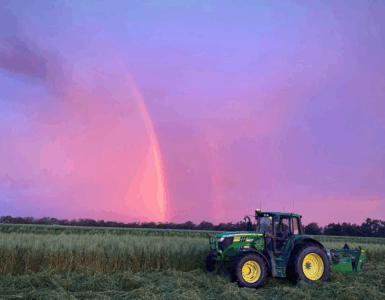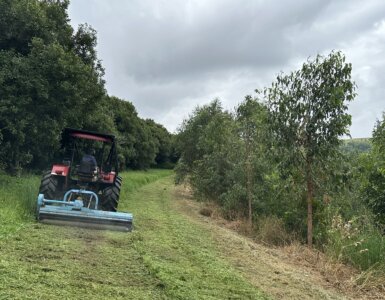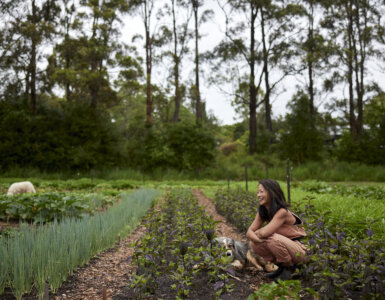Life sounds pretty sweet in WA’s pristine Kimberley when you’re producing beautiful rawbush honey. Given the region has no industry or other pollutants, the bees thrive among the watermelon plantations, Grevilleas and Melaleuca.
This Indigenous owned family business has been awarded a grant as part of the Coles Nurture Fund. And they have some exciting ideas about how to spend it.
David Appleby of Walaja Raw Bush Honey explains that ‘Walaja’ is the Indigenous word for honey and the bees just love this part of the country. The Melaleuca, or Paperbark, trees flower for half the year and feed the company’s famous medically active, bright golden honey.
It’s aromatic and certainly the most nutritious place for the bees. It produces the best honey.”

From pearl diver to beekeeper
David certainly knows his stuff but incredibly, he’s only been producing honey for less than a decade. His previous career was commercial pearl diving and it wasn’t until he failed his most recent medical exam, that he had to start again.
There are parallels believe it or not. Even though one’s under water and the other is land-based, your powers of observation have to be sharp.”
“It’s all to do with the seasons and the changes that come with that. What you notice with pearl diving is, you have to have a sharp eye to pick up the pearl oysters. Indeed, you have to have a sharp eye to see what’s going on in the bee hive.”
David says it has been a steep learning curve but he’s now up to 400 bee colonies and is building on that.
The snakes in beekeeping
So, as a relatively inexperienced beekeeper in a region where honey production is in its early stages, there’s been a lot to learn. However, the benefits are many. The west Kimberley is disease free and there’s no pollution associated with industry. It makes the conditions ideal for honey production.
“I’ve made mistakes but I learn from them by talking to experienced people.
It’s a bit like Snakes & Ladders!”
“You climb the ladder and every now and then you hit a snake. You’ve got to learn from that and keep going. I have a resilience and a determination to keep going.”

Medicine trees
Conditions in that part of Western Australia are ideal for about eight months of the year. “It’s a beekeepers paradise. There are flowers everywhere. It lends itself to prosperous beekeeping,” David shares.
The challenge comes during the four months over the wet season where the bees need to be protected and maintained.
It’s a true family business. David’s wife Diane is Indigenous and adds a lot of local knowledge about the natural environment. His son handles the mechanical side of things and his daughter helps with marketing. He shares how Diane’s family used to refer to the paperbark trees as ‘medicine trees’.
They knew through aural history that if you rubbed this nectar on your skin, it would heal any skin infections.”
“If you swallowed the nectar, it was good for any chest infections or flu or cold,” David explains. He decided to send the melaleuca honey off for testing to see if he could substantiate the legend.
“We found that the Aboriginal people were right. The scientists who examined it, noted the lovely bright golden colour, the aromatics and the TA (Total Activity) or natural antibiotic properties was 26.6. That puts it up there with the top honeys in the state,” he shares.
David says he still get excited to go to work every day and the $330,000 grant from Coles will help him to expand his knowledge and explore the therapeutic side of honey with a medicinal grade melaleuca honey.
The future sure is looking sweet.
Hear more stories like this by subscribing to the Telling Our Story podcast on iTunes (or wherever you listen to podcasts) and follow podcast host Angie Asimus on Instagram for more updates.







































Add comment